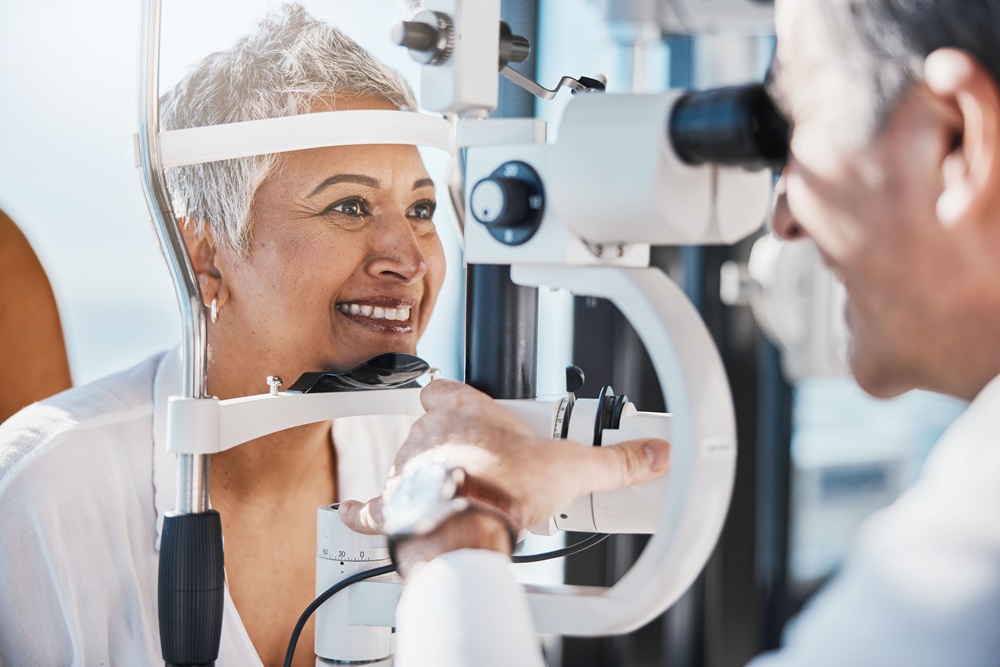
Learn the signs you may need refractive lens exchange in Bensalem, PA, and explore how it can address age-related vision and refractive errors.
If you’re noticing that glasses and contact lenses no longer seem to correct your vision as well as they used to, or you’ve been told you’re not a candidate for LASIK, it might be time to explore refractive lens exchange (RLE) at IC Laser Eye Care & Suburban Eye Associates in Bensalem, PA. This procedure is designed to replace your eye’s natural lens with an intraocular lens (IOL), correcting refractive errors like myopia, hyperopia, and astigmatism.
For patients in their 40s and up, especially those beginning to notice age-related vision changes, refractive lens exchange could be the ideal long-term solution.
How do you know if RLE might be right for you?
If you’re over 40 and struggling with blurry vision at multiple distances, even with prescription glasses or contacts, you may be showing signs that RLE is worth considering. While these changes can feel frustrating, they’re also a natural part of aging. Refractive lens exchange in Bensalem, PA is especially beneficial for patients who:
- Are experiencing early-stage cataracts
- Have a strong glasses or contact lens prescription
- Are not ideal candidates for LASIK or PRK due to corneal thickness or other reasons
- Want a lasting solution for presbyopia or other refractive errors
Unlike LASIK, which reshapes the cornea, RLE replaces the natural lens with a customized IOL to correct vision and can remove the potential for developing cataracts later in life.
Understanding cataract surgery vs refractive lens exchange
While the techniques are nearly identical, the difference lies in the reason for the surgery. Cataract surgery is performed when the lens becomes cloudy, impacting daily vision. RLE, on the other hand, is a proactive procedure, often done before cataracts develop, aimed at reducing dependence on corrective eyewear and preventing future vision issues.
Both surgeries involve removing the natural lens and implanting an IOL. At IC Laser Eye Care & Suburban Eye Associates, we offer advanced lens technology options that support clearer, sharper vision across all distances.
When is the best age for refractive lens exchange?
There’s no universal answer, but most RLE patients are in their mid-40s to mid-60s. This is typically when presbyopia and other age-related changes start to interfere with everyday life. If you find it increasingly difficult to read menus, use your phone, or work on the computer, despite having progressive lenses or reading glasses, you may be at an age where RLE is appropriate. Early treatment can offer greater long-term benefits, especially for patients beginning to show signs of early cataracts or those who want to avoid the hassle of constant eyewear adjustments.
What are the advantages of refractive lens exchange?
The primary benefit of RLE is improved vision without the daily need for glasses or contacts. But RLE also comes with long-term advantages, such as:
- Removes the risk of developing cataracts later in life
- Provides more predictable visual outcomes than some corneal procedures
- Offers customizable IOLs to suit unique vision needs and lifestyle
- Can treat a wide range of refractive errors, including extreme prescriptions
Get started with refractive lens exchange
If you’re exploring ways to reduce your reliance on corrective lenses or have been told you’re not a candidate for laser eye surgery, RLE may be the solution you’ve been looking for. At IC Laser Eye Care & Suburban Eye Associates in Bensalem, PA, our team provides thorough evaluations and straightforward guidance to help you understand your options. Whether you have healthy eyes and want more visual freedom or are beginning to notice the effects of age-related vision changes, we’re here to help you make the best choice possible for long-term sight. Contact our team today to schedule a consultation and find out if refractive lens exchange is right for you.
